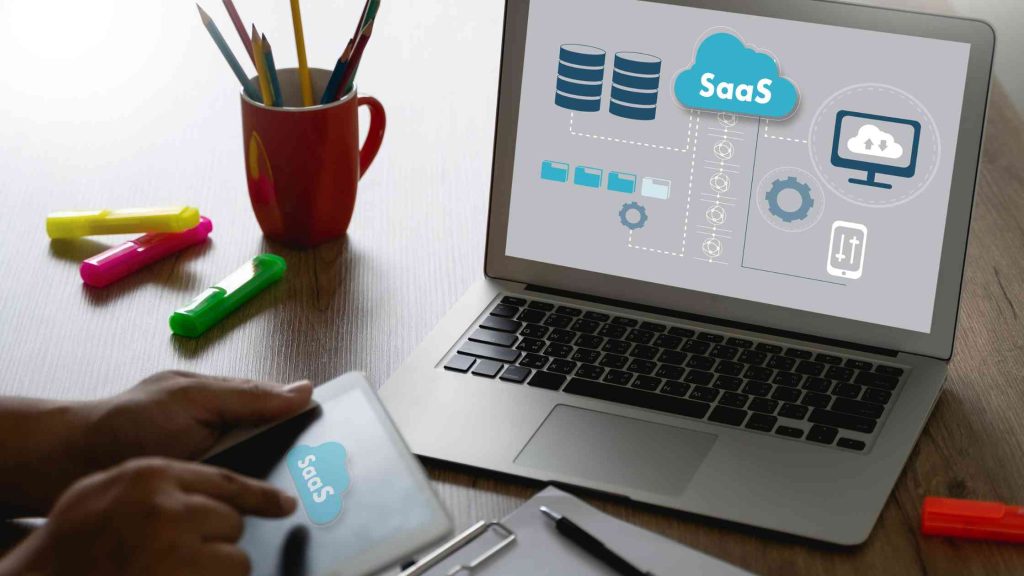Companies increasingly turn to cloud-based solutions to streamline operations and enhance productivity in today’s fast-paced business environment. One such solution is the cloud ERP, a software platform that enables organizations to manage their business processes in the cloud.
But what exactly is a cloud ERP, and how does it differ from a SaaS ERP? We’ll explore the key differences between these two ERP solutions and help you understand which suits your organization.
What is Cloud ERP?
Cloud ERP (Enterprise Resource Planning) is a software solution that enables organizations to manage their business processes in the cloud. It is a comprehensive platform that provides all the features and functionality of a traditional on-premise ERP solution but with the added benefits of cloud computing.
With cloud ERP, organizations can access their data and applications from anywhere in the world as long as they have an internet connection. It is ideal for businesses with multiple locations, remote employees, or a distributed workforce. Cloud ERP also provides real-time data analytics, enabling organizations to make informed decisions quickly and accurately.
What is SaaS ERP?
SaaS (Software as a Service) ERP is a software solution hosted and maintained by a third-party provider. Unlike traditional on-premise ERP solutions, SaaS ERP is accessed over the Internet, and organizations pay a monthly subscription fee to use the software.
SaaS ERP provides all the features and functionality of traditional ERP solutions but with the added benefits of cloud computing. It eliminates the need for organizations to invest in expensive hardware and infrastructure, and it provides real-time data analytics, which enables organizations to make informed decisions quickly and accurately.
Key Differences between Cloud ERP and SaaS ERP
While cloud ERP and SaaS ERP are both cloud-based solutions, they have some critical differences. The following are the significant differences:
Ownership and Control
With cloud ERP, organizations own the software and control its implementation and customization. On the other hand, with SaaS ERP, the software is owned and managed by the provider, and organizations have limited control over its implementation and customization.
Deployment
Cloud ERP can be deployed on-premise or in the cloud, depending on the organization’s needs. SaaS ERP, on the other hand, is only deployed in the cloud.
Cost
Cloud ERP is typically more expensive than SaaS ERP because organizations have to invest in hardware and infrastructure. SaaS ERP, on the other hand, is a pay-as-you-go solution, which makes it more cost-effective for small and medium-sized businesses.
Customization
Organizations can customize the software with cloud ERP to meet their specific needs. With SaaS ERP, customization options are limited, and organizations have to use the features provided by the provider.
Which one is right for your organization
Choosing between cloud ERP and SaaS ERP depends on your organization’s specific needs and budget. If you have a large budget and want complete control over the software, cloud ERP may be the right choice. On the other hand, if you have a limited budget and want a cost-effective solution that provides all the features and functionality of traditional ERP solutions, then SaaS ERP may be the right choice.
In conclusion, cloud and SaaS ERP are excellent solutions that can help organizations manage their business processes in the cloud. However, choosing between them depends on your organization’s needs and budget. By understanding the critical differences between these two types of ERP solutions, you can make an informed decision that will help your organization achieve its goals.
Benefits of Cloud ERP
Cloud ERP (Enterprise Resource Planning) is a software solution that enables organizations to manage their business processes in the cloud. It offers numerous benefits to help organizations improve efficiency, reduce costs, and streamline operations. Here are some of the key benefits of cloud ERP:
Reduced Costs: One of the most significant advantages of cloud ERP is its cost-effectiveness. Unlike traditional on-premise ERP solutions, cloud ERP eliminates the need for organizations to invest in expensive hardware and infrastructure. Additionally, cloud ERP is a pay-as-you-go solution, which means organizations only pay for what they use.
Flexibility and Scalability: Cloud ERP allows organizations to scale up or down based on changing business needs. Organizations can easily add or remove users, applications, or services without investing in new hardware or infrastructure.
Accessibility: With cloud ERP, organizations can access their data and applications from anywhere worldwide, as long as they have an internet connection. It is ideal for businesses with multiple locations, remote employees, or a distributed workforce.
Real-Time Data Analytics: Cloud ERP provides real-time data analytics, which enables organizations to make informed decisions quickly and accurately. It is because cloud ERP collects and analyzes data in real-time, giving organizations a clear picture of their operations, finances, and performance.
Improved Collaboration: Cloud ERP enables organizations to collaborate more effectively, regardless of location. It provides a centralized platform where employees can share information, collaborate on projects, and communicate in real time.
Enhanced Security: Cloud ERP provides enhanced security features, including data encryption, multi-factor authentication, and regular data backups. It ensures that organizations’ data is secure and protected from cyber threats.
In conclusion, cloud ERP offers numerous benefits that can help organizations improve efficiency, reduce costs, and streamline operations. By implementing cloud ERP, organizations can stay competitive in today’s fast-paced business environment and achieve their goals more effectively. Contact us for a customized ERP.

Vijay comes with a vast experience in ERP and enterprise solutions space with about 20 years of experience in various packaged application like Acumatica, SAP, Orion, Salesforce.com, SugarCRM and, SalesLogix.

